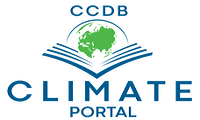The recent flash flood, as a sudden onset disaster caused a huge loss of crops, which ultimately caused damage to lives and livelihoods of millions of people, in particular in haor areas in Bangladesh.
The incident of loss of crops possess a further challenge for food security in Bangladesh since hoar basin produces significant amount of rice for Bangladesh. Moreover, the slow onset process of flash flood also caused huge damage to ecology and biodiversity; and some experts immediately identified huge loss of fish and other aquatic resources.
This brief article does not use any data and information due to the absence of appropriate tools and methodology for assessment of damage in Bangladesh. Instead, the article provides a policy analysis based on the understanding of the nature of loss and damage caused by the recent flash flood.
At the outset, it is important to identify linkages between climate change and the indent of the recent flash flood. Climate change and its impacts are the reality now beyond any scientific disputes and community perceptions.
However, scientific attribution for a particular indent like the recent flash flood in Bangladesh and associated loss and damage still remain a challenge for global scientific community. In absence of enough scientific evidences, it might not be considered as climate induced flash flood, but early flash flood provides an analogy for climatic variability, with clear scientific arguments and evidences.
Nevertheless, while attribution science is advancing, it is important at this stage to understand the nature of such kind of loss and damage resulting from the incidents of flash floods and to design the governance structures to deal with it. Firstly, the loss of crops, resulted from the flash flood can be quantified economically and also compensation can be determined for the victims within the purview of disaster management policy in Bangladesh. But the challenges persist with non-economic loss and damages are associated with loss of crops, including damage to food security, damage to health — particularly of women and children, damage to education, migration and damage to social coherence and resilience, loss of values, cultures, and son on. These sort of non-economic loss and damage require a specific set of tools and methodologies to assess and to quantify for compensation. Currently neither global community nor Bangladesh government adopted and approved such tools and methodologies. Secondly, the nature of loss and damage to environment and ecology, biology, and biodiversity caused from the flash flood demands a different set of tools and methodologies to assess and to take compensation and corrective measures. So, loss of fishes and other aquatic species and damage to water quality and ecology resulted from the flash flood need to be assessed with right set of tools to identify the right set of corrective measures along with compensation. The environment regulatory regime in Bangladesh provides the scope for addressing environmental damage through administrative and judicial forums. But the detail outlines of assessing environmental damage and to determine the right set of approaches is still absent in environmental policy regime in Bangladesh. At the same time, the technical and human capacity are also absent in Bangladesh for addressing environmental harm. Thirdly, loss and damage, resulted from flash flood demands a unique financial mechanism, which will facilitate the emergency response, compensation and corrective measures including rehabilitation. At the same time, the pro-active approaches to loss and damage, including early warning system, risk management, risk reduction, risk retention; and risk demand a financial support in a structured mannered. Currently, financial mechanisms, exist in Bangladesh related to disaster. Environment and climate change are not adequately structured and mandated to facilitate pro-active and re-active responses to loss and damage resulted from flash flood. In particular, Climate Change Trust Fund, operates in Bangladesh with domestic resources, can develop a separate financial wing to facilitate loss and damage resulting from disasters and slow on set processes. This separate financial wing, of the trust fund can mobilise financial resources from global funds related to disaster and climate change. Fourthly, while negotiations on loss and damage associated with climate change impacts are taking place within the UN Framework Convention on Climate Change (UNFCCC) policy regime, loss and damage resulting from inter alia climate change impacts is evident at the local level. Hence, the issue of loss and damage must be incorporated into existing national institutional and financial arrangements on climate change, disaster, and environment in Bangladesh. The parties of UNFCCC at COP 18 (Bangladesh is also a party) agreed for strengthening institutional arrangements and enhancing capacity building at the national levels to address loss and damage associated from climate change (decision 3/CP.18). Current institutional and financial arrangements related to environment, disaster, and climate change exist in Bangladesh and that provide limited scopes to address loss and damage associated with climate change. In conclusion, existing institutions can be strengthened to address loss and damage, but the limitations identified in the existing framework suggest that a specific institution/mechanism should be established in Bangladesh in order to provide oversight and guidance to all relevant sector institutions to deal with loss and damage. The Warsaw International Mechanism (WIM) on loss and damage under UNFCCC is evolving along with structures and functions, generating knowledge and information and providing guidance to take initiative at the national level. So, the government of Bangladesh can develop national mechanisms to address loss and damage with clear linkages and synergies with the WIM which could also provide bottom-up support to structuring the WIM to address loss and damage at international level.


